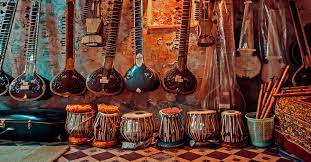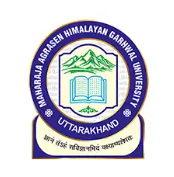Gandharva Ved-Indian Classical Music Course Admission 2024-25 Shikshaglobe

Gandharva Ved-Indian Classical Music Course
Hindustani Vocal Music is the classical music of Northern India, It's known as Shastriya Sangeet. The origin of this artform is dated to the 12th century CE. Indian classical music has seven introductory notes with five interspersed half- notes, The Gandharva Veda ’ is a Sanskrit Book describing the proposition of music and its operations in not just musical form and systems but also in drugs, drug and magic. It's said that there are two types of sound ?hata( struck/ audible) and an?hata( unstruck/ inaudible). The inaudible sound is said to be the principle of all incarnation, the base of all actuality. What we're bringing to you at Sanskul, is a veritably structured, regular and well planned class which takes from the simple basics of music to the more complex generalities in a step by step procedure. We can assure that this can be a lot of fun and satisfying too
Learn More: Direction Course
So who's suitable to attend this course that’s coming up? People with musical background, or people without?
Reshma Does n’t matter. The thing is, if they've music background, for them still so numerous effects will be new, because of the conception of Maharishi Gandharva Veda. When they come to this course they will have their knowledge, but after this, the knowledge will get multiplied by a hundred for what they formerly learned. It’s the same as do-re-mi-fa-so-la-ti. We've sa-re-ga-ma-pa-dha-ni. It’s not like seven different notes, it’s the same notes but how you can make those seven notes into a beautiful bouquet. That’s the whole thing about this course, that you learn the basics, you learn the knowledge, how you can produce happiness and joy with those sounds, and how much more you can extemporize. We ’re not going to come professional. But you can please yourself. It’s tone-amusing. You can play for yourself, you can play for your family, your shops. And you still will be happy. You'll get a lot of joy doing that. Andreia One other important point is that everything Maharishi did has the element of knowledge. In everything in Vedic knowledge, the element of knowledge was lost, and Maharishi’s work was to put that back. The thing is if the music is according to nature, it resonates, and it resonates throughout nature. And artificially it resonates inside of us. The ragas and those limits — those boundaries — are according to natural law. Because there's this freedom to extemporize, it’s noway the same. And when you go to Reshma’s musicales, you do n’t feel like she has to do commodity differently, that there's commodity missing, that it’s boring or anything like that. I flash back one of Reshma’s musicales, she played such a beautiful composition and I was sitting there, and I allowed
The Importance of Gandharva Ved-Indian Classical Music in
Today's World
Indian classical music, including Gandharva Ved, is a treasure trove of cultural heritage. Its historical significance and artistic depth make it a vital aspect of modern society. This art form showcases the soulful expressions of emotions, connecting individuals across generations. By preserving and promoting Gandharva Ved, we not only honor our roots but also foster a sense of identity and belonging in today's fast-paced world.
Continue Reading: Post Graduate Diploma in Music (Tabla) Course
Exploring Different Types of Gandharva Ved-Indian
Classical Music
Gandharva Ved-Indian Classical Music encompasses a diverse
range of styles, each characterized by its distinct rhythms, scales, and
expressions. From the meditative strains of Dhrupad to the playful beats of
Thumri, and the complex patterns of Khayal, there is a multitude of forms that
offer a unique experience to both musicians and listeners alike.
Benefits of Pursuing Gandharva Ved-Indian Classical Music
Learning Gandharva Ved offers numerous benefits beyond the
sheer enjoyment of music. It enhances cognitive abilities, improves
concentration, and fosters creativity. Moreover, its meditative qualities
promote emotional well-being, reducing stress and anxiety. For students,
Gandharva Ved imparts discipline and patience, nurturing a holistic approach to
education.
How Gandharva Ved-Indian Classical Music Enhances
Professional Development
The skills acquired through Gandharva Ved training are
transferable to various professional domains. The practice of improvisation and
adaptability honed in music aids individuals in problem-solving and effective
decision-making. Additionally, public performances instill confidence and the
ability to connect with audiences, which are valuable assets in a professional
setting.
The Role of Gandharva Ved-Indian Classical Music in
Career Advancement
For those aspiring to pursue a career in music, Gandharva
Ved lays a strong foundation. The rigorous training and exposure to different
musical styles prepare musicians for a successful career on the stage.
Moreover, music education institutions offer specialized courses that cater to
students' specific interests and career goals.
Choosing the Right Education Course for Your Goals
Selecting the right education course is crucial for aspiring musicians. One must consider factors like faculty expertise, infrastructure, and performance opportunities. Whether one aims to become a performer, a music educator, or a composer, the course curriculum should align with their individual aspirations.
Know More: Advance Diploma in Music and Singing Course
Online vs. Traditional Gandharva Ved-Indian Classical
Music: Pros and Cons
The advent of technology has facilitated online music
education, providing flexibility and access to a wider audience. While
traditional face-to-face learning offers personalized guidance, online
platforms offer convenience and affordability. Weighing the pros and cons can
help individuals decide which mode of learning suits them best.
The Future of Gandharva Ved-Indian Classical Music:
Trends and Innovations
As the world evolves, so does music. Gandharva Ved is not
exempt from innovation and adaptation. Technological advancements have led to
exciting collaborations between traditional music and modern instruments,
expanding the horizons of this ancient art form.
The Impact of Gandharva Ved-Indian Classical Music on
Student Success
Numerous studies have highlighted the positive impact of
music education on overall academic performance. Gandharva Ved, with its
holistic approach, fosters a well-rounded personality in students, leading to
success in various aspects of life.
Addressing the Challenges of Gandharva Ved-Indian
Classical Music and Finding Solutions
Preserving a traditional art form in a contemporary world is
not without challenges. Ensuring its continuity requires addressing issues such
as funding, dwindling interest, and maintaining authenticity. Collaborative
efforts between artists, educational institutions, and the government can pave
the way for a sustainable future.
Understanding the Pedagogy and Methodology of Gandharva
Ved-Indian Classical Music
The pedagogy of Gandharva Ved is based on the guru-shishya
tradition, emphasizing a strong bond between the teacher and student. This
personalized approach ensures the transmission of knowledge, tradition, and
artistic nuances from one generation to another.
The Global Perspective: Gandharva Ved-Indian Classical
Music Around the World
Indian classical music, including Gandharva Ved, has found admirers worldwide. Musicians from diverse cultures embrace its essence and collaborate, infusing new dimensions into this ancient art form. The global reach of Gandharva Ved reflects its universality and timelessness.
Read Also: Super Professional Course of Fine Art (Foundation) Course
Gandharva Ved-Indian Classical Music for Lifelong
Learning and Personal Growth
Gandharva Ved is not limited to age or stage in life. Its
pursuit can be a lifelong journey, offering continuous personal growth and
fulfillment. For enthusiasts, music serves as a means of self-expression,
introspection, and connecting with the divine.
Funding and Scholarships for Gandharva Ved-Indian
Classical Music
To support the continuation of Gandharva Ved, various
organizations and governments offer scholarships and funding for aspiring
musicians. Availing these opportunities can enable talented individuals to
pursue their passion without financial constraints.
Case Studies: Success Stories from Education Course
Graduates
The impact of Gandharva Ved education can be observed
through success stories of graduates who have excelled in the field of music.
These inspiring individuals exemplify the transformative power of music
education and how it opens doors to boundless possibilities.
This song would be a megahit indeed in the West
So it’s not that you ’re always just bound. You have freedom within boundaries, which is the beauty of everything that Maharishi did. Because Maharishi did educate us about the boundaries of the relative field of life, and the freedom and expansion of the absolute. And he tutored us that life in enlightenment, lived in enlightenment is horizonless freedom within the boundaries of the relative. And I suppose that Maharishi Gandharva Veda expresses this beautifully because you have these two rudiments you have the freedom, and you have the boundaries, and they can live together really well.
What are some other differences between Gandharva Veda music and Western classical?
Reshma extemporization – that’s the biggest difference from western music. In Indian classical music or Maharishi Gandharva Veda, you can extemporize, embellish, make it look so beautiful. You have to make the base really solid to lift off — you have a long runway before you take off, and if you have to go really far down, you ’re going, going, going, also you take off! So we've the boundary, within the boundary you fly, you colour, you run around, but also you come home. And that’s the beauty of Maharishi Gandharva Veda. You can do whatever you want to do, and indeed the boundaries do n’t feel like a rule you have to follow. They ’re beautiful.
Is there a difference between Gandharva music and Indian classical?
Reshma ‘ Gandharva Veda ’ music is the real name, the ancient name, that’s how we started. The term ‘ Indian classical ’ music came on as people started going abroad, because when they started traveling , it was easier for them to say we're doing ‘ Indian classical music ’, easier for listeners to catch. But it’s enough much the same thing. Gandharva Veda music is the real name, the ancient name, how we started. But what musicians are doing these days, they're allowing that if they add swab and pepper it'll be more delicious.











